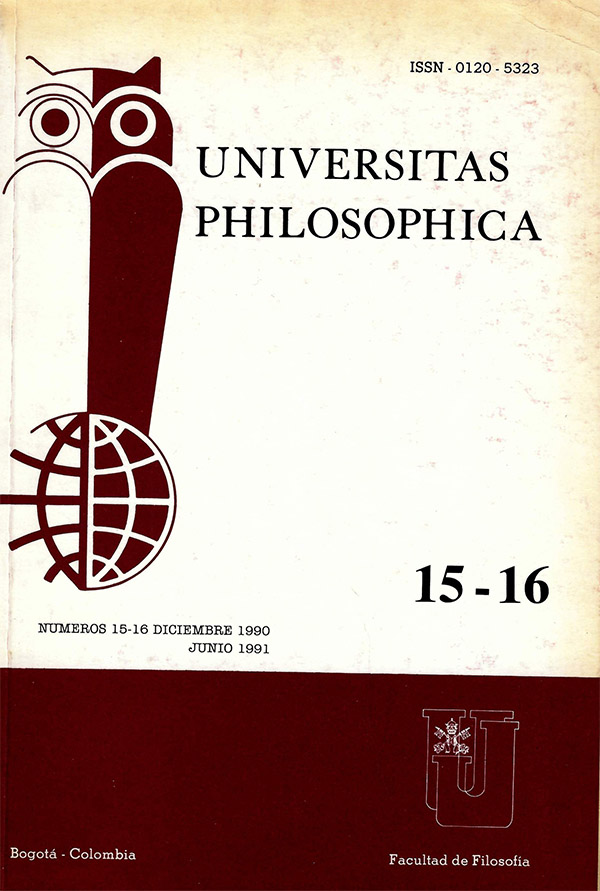Abstract
El presente artículo se propone examinar algunos puntos particulares de la filosofía política de John Locke, especialmente su polémica con Sir Robert Filmer a propósito del origen del poder político en el "derecho divino de los Reyes", polémica desarrollada por el filósofo inglés en su Primer Ensayo sobre el Gobierno Civil, con el fin de mostrar el papel que juega la refutación de las ideas expresadas en El Patriarca de Filmer en la configuración del pensamiento político lockeano.
Después de una introducción, en donde la autora enuncia sintéticamente las principales tesis que quiere sustentar, y de unas consideraciones preliminares sobre la vida y obra de Filmer, sobre los principales acontecimientos de la historia inglesa dentro de los cuales se enmarca la polémica indicada y sobre la importancia teórico-práctica de esta última, se procede a explicar el origen histórico de la "teoría del derecho divino de los Reyes" y a hacer un examen detenido del texto de Filmer y de las obras políticas de Locke en relación con la circunstancia histórica en que surgieron y con otros filósofos, especialmente Hobbcs. La última parte del trabajo está dedicada en su totalidad a seguir, paso a paso, la refutación lockeana del absolutismo.
This journal is registered under a Creative Commons Attribution 4.0 International Public License. Thus, this work may be reproduced, distributed, and publicly shared in digital format, as long as the names of the authors and Pontificia Universidad Javeriana are acknowledged. Others are allowed to quote, adapt, transform, auto-archive, republish, and create based on this material, for any purpose (even commercial ones), provided the authorship is duly acknowledged, a link to the original work is provided, and it is specified if changes have been made. Pontificia Universidad Javeriana does not hold the rights of published works and the authors are solely responsible for the contents of their works; they keep the moral, intellectual, privacy, and publicity rights.
Approving the intervention of the work (review, copy-editing, translation, layout) and the following outreach, are granted through an use license and not through an assignment of rights. This means the journal and Pontificia Universidad Javeriana cannot be held responsible for any ethical malpractice by the authors. As a consequence of the protection granted by the use license, the journal is not required to publish recantations or modify information already published, unless the errata stems from the editorial management process. Publishing contents in this journal does not generate royalties for contributors.


